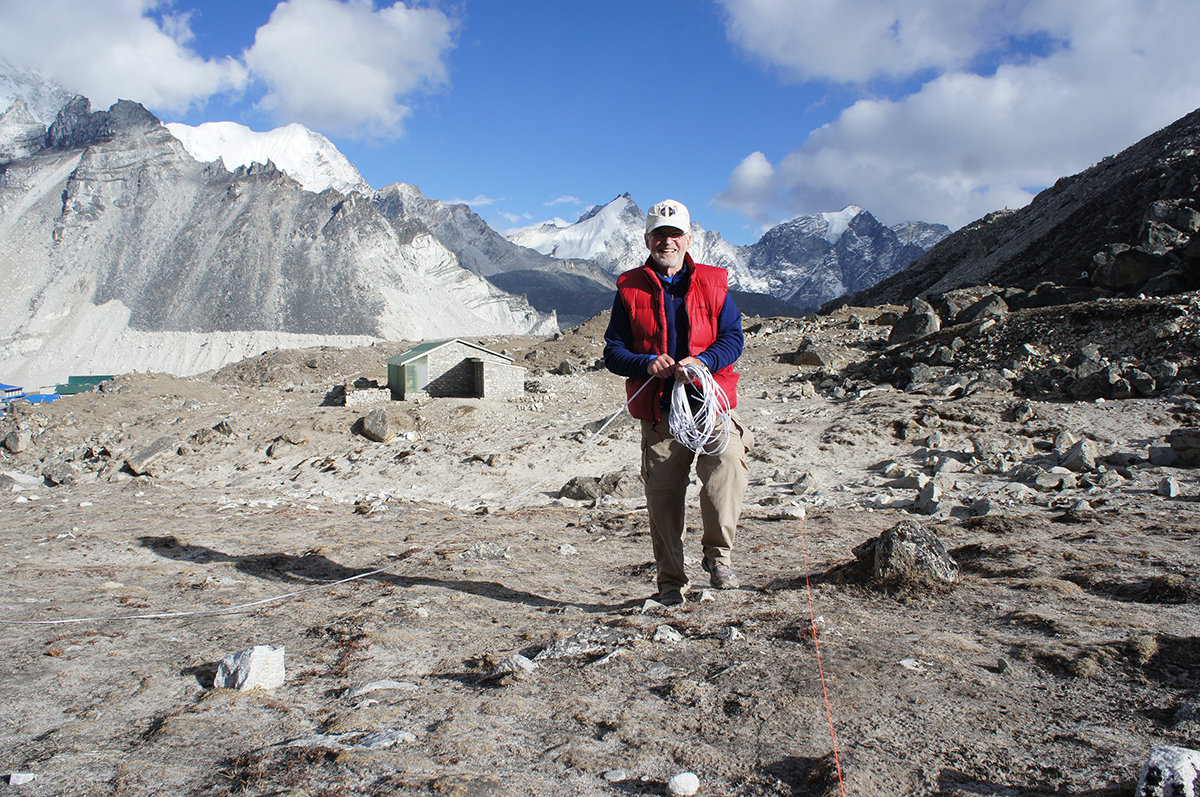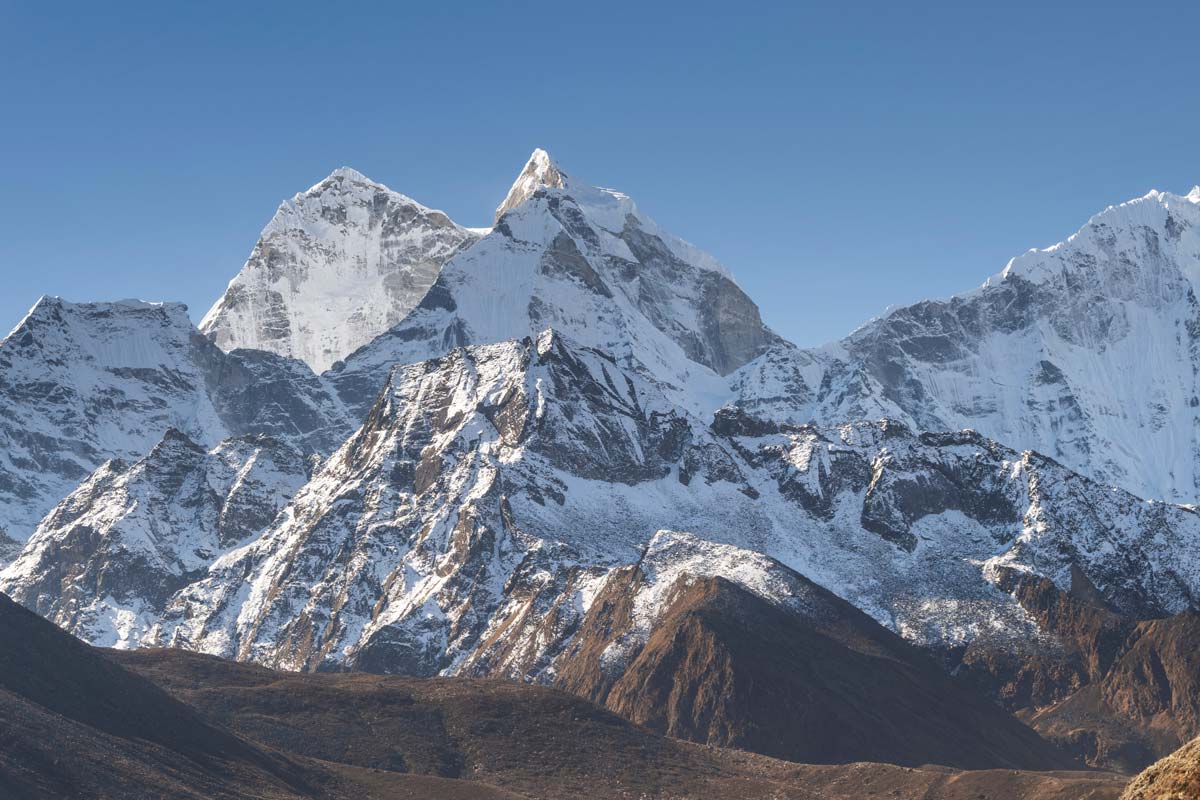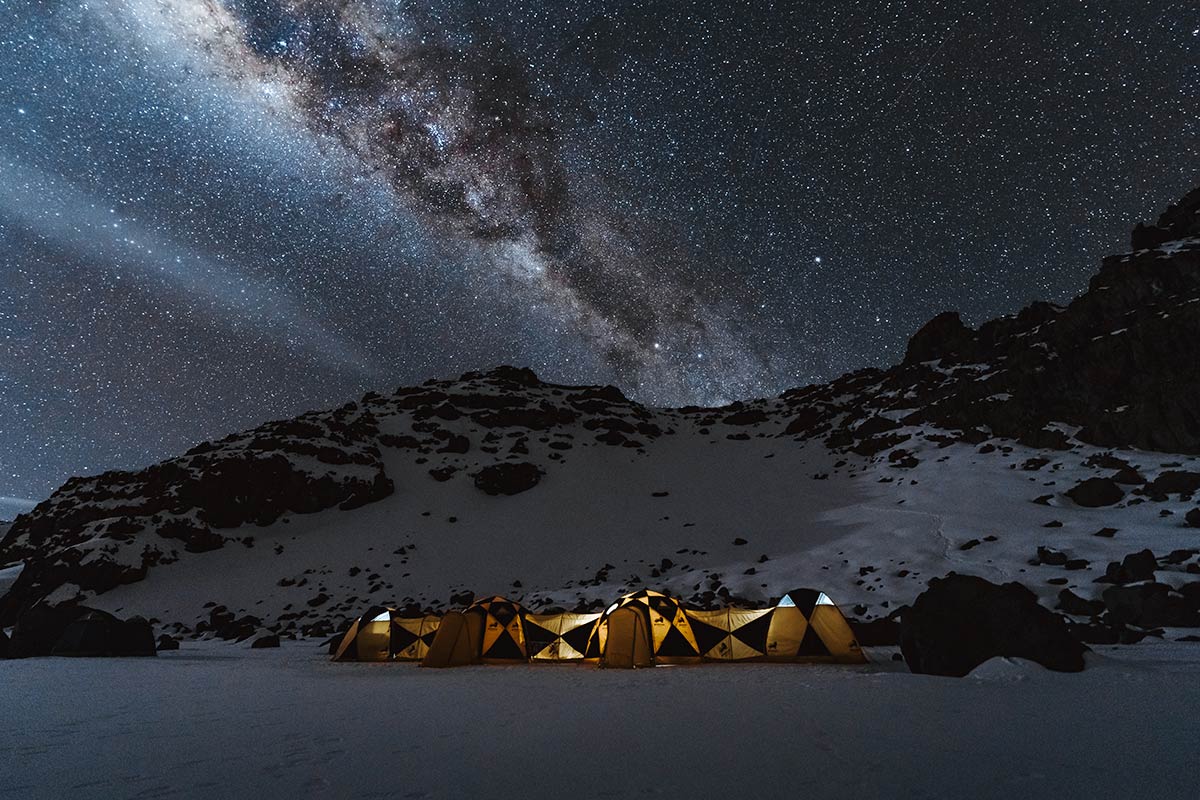2017 UIAA MOUNTAIN PROTECTION AWARD WINNER
TACKLING THE IMPACT OF HUMAN WASTE ON EVEREST AND BEYOND
Shiraz, Iran – 21 October, 2017 – Mount Everest Biogas Project was announced as the overall winner of the 2017 UIAA Mountain Protection Award during the UIAA General Assembly in Shiraz on Saturday 21 October.
The United States-based project is a volunteer-run, non-profit organization that has designed an environmentally sustainable solution to the impact of human waste on Mt. Everest and other high altitude locations. The Mount Everest Biogas Project (MEBP) is the fifth winner of the annual Award joining projects from Ethiopia, Tajikistan, Nepal and France. Since 2013, over 80 projects from 37 countries have been showcased as part of the UIAA Mountain Protection Award platform.
Video: Garry Porter, Mount Everest Biogas Project
“The Mount Everest Biogas Project is a deserving winner of the Award,” explained UIAA Mountain Protection Commission President Dr Carolina Adler in Shiraz. “Waste in the mountains is a real problem that calls for implementation of solutions to address and test it under often very challenging environmental and social conditions.”
Stephen Goodwin, member of the UIAA Mountain Protection Commission, a vice-president of the Alpine Club (UK), and one of the Award assessors, added: “The Mount Everest Biogas Project project perfectly meets the aims of our Commission in that it is clearing up the waste of mountaineers and trekkers in an iconic location. There are multiple benefits for the “downstream” Sherpa population (notably less polluted water) and providing the project proves a success this technology can be applied to other high altitude mountain locations where climbers and/or trekkers have created a waste disposal problem.”

For the Award winners themselves, this is recognition for seven years of intense work and development towards helping resolve the major issue of ‘what to do with human waste in an extreme environment’. Garry Porter, one of the project’s co-founders, explains the potential benefits of winning the Award: “The Mountain Protection Award is a huge morale boost to our volunteer team members because it acknowledges their efforts in addressing a solution to the issue of human waste in mountains. The prestige of an endorsement by the UIAA will provide a major boost to our fundraising effort.”
About MEBP
Mt. Everest boasts a massive climbing industry, with hundreds of climbers making the trip up the Khumbu Valley each year. This tourism, which has led to massive financial gain for the Nepalese, has also left a trail of human waste that has given way to environmental and public health concerns.
MEBP proposes to use an anaerobic biogas digester to treat the human waste, and outlines the project management solution to do so. The biogas digester will eliminate dumping of solid human waste at Gorak Shep and destroy pathogenic fecal coliforms that threaten the health of the local communities – lessening the impact of the tourism industry on a mountain that is sacred to the Nepalese. Initiated in 2010 in affiliation with Engineers without Borders and Architects without Borders, the MEBP system technology has been designed and tested and the team has brought the project to construction-ready. Groundbreaking is planned for spring 2018 and an operational date slated for winter 2019.

“We have strong support from the Nepalese organizations along with the Gorak Shep tea house owners,” adds Porter in relation to the project’s next steps. “Our engineering and architectural design is sound: and we have high confidence in it. It is now time to put theory to test.”
Each year, thousands of climbers and support staff populate Everest Base Camp for several months during the climbing seasons, producing approximately 12,000 kg of solid human waste. In 1991, the Sagarmatha Pollution Control Committee (“SPCC”), was created with the responsibility for protecting the environment of Mt. Everest. Since then, SPCC has developed waste management strategies for the removal and disposal of human trash. However, there has been no viable solution of how to deal with human waste. The current practice is to pack it down to the nearest teahouse village of Gorak Shep from base camp in barrels and dump the waste into open pits, just above the flow of the Khumbu Glacier that feeds the lower valley. The untreated waste in these unlined pits poses a danger both to the environment and to the public health of the Sherpa people who live in the region.
Video: Mount Everest Biogas Project
The Mt. Everest Biogas Project will address this environmental and health hazard in a sustainable manner and serve as a model for other regions that must deal with similar waste problems at high-altitude, regardless if it is caused by climbers or local communities. When implemented, MEBP will: eliminate the dumping of solid human waste at the teahouse village of Gorak Shep; reduce reliance on burning wood or yak dung for heating and the resultant respiratory and ocular health risks; reduce deforestation of the areas limited wood resources; and reduce risk of water contamination by fecal coliform. The system will convert waste into methane, a renewable natural gas, and a reduced pathogen effluent.
With funds raised through the MEBP, this project will build the first operating biogas digester in a cold climate. Once the biogas digester is established and running in the Khumbu valley, the design will be made available to the public so that other similar mountain climates in need of a sustainable waste management system can use this design in their own replications.
“The fact that this is an all volunteer design team compounded the challenge,” explains Porter. “Everyone on the team believes that they can make a difference, but they all have a “real life”: a demanding job, family and friends and a life outside of work. My previous experience in program management did not prepare me for the necessity of nudging, coaxing and sometimes pleading to keep the project moving forward. And yet, some of these same volunteers have spent seven years on the project. We could not have done it without their time and talent.”
This human element of teamwork and commitment has been crucial to MEBP’s success and Porter’s advice for aspiring projects is to: “Find the best people who truly believe in what you are doing and never ever give up. Provide the vision of what you want to achieve and let the team members use their talents to achieve it. There will be many obstacles along the way, but the people you meet will all share the same vision. The mountains with which our planet has been blessed must be protected and preserved.”
Further details on the MEBP can be found both on the dedicated nominee page and on the official project website.
The UIAA thanks the MP Award and Assessment Team for their commitment and expertise during the course of the 2017 Award.
Application for the 2018 UIAA Mountain Protection Award opens in March 2018.
* All images and video courtesy Mount Everest Biogas Project
2017 UIAA MOUNTAIN PROTECTION AWARD PAST WINNERS
2013 – Menz-Guassa Community Conservation Area, Ethiopia
2014 – Pamir Horse Adventure, Tajikistan
2015 – KTK-BELT Studio, Nepal
2016 – Mountain Wilderness, France
2017 – Mount Everest Biogas Project, United States
2017 UIAA MOUNTAIN PROTECTION AWARD NOMINATED PROJECTS
 Argentina: Mujer Montaña
Argentina: Mujer Montaña
Mountains for Life; Cordillera Blanca, Our Ecological Footprint
Argentina: Project Aconcagua
Implementation of human waste disposal measures at base and high altitude camps
Argentina: Waka Thaki
Sacred paths
Austria: Alpine Pearls
Supporting environmentally friendly travel
Azerbaijan: FAIREX
Less In, More Out
Cambodia: Wildlife Alliance
Community-based ecotourism in the Cardamon Mountain Range, Cambodia
Colombia: Fundación Edenes de Colombia
Acceso a paraísos de Colombia (Access to Colombia’s paradises)
Colombia: NOSTOC
Ecological restoration of the habitat of the spectacled bear
Colombia: Project Cordillera
Connecting adventure tourism with high mountain communities and local efforts to protect the environment
Croatia: Zagreb Speleological Union
Clean underground
France. Innov Mountains
Digital best practices and portal for mountain sustainability
International: Biosphere Expeditions
Mountain protection worldwide through citizen science and volunteering
Iran: I.R Iran Mountaineering & Sport Climbing Federation
Waste Management, Education Mountaineers and Cultural Affairs in Damavand
Ireland: Help the Hills
Tallaght: ‘Gateway to the Dublin Mountains’
Italy: Fondation Grand Paradis
I.T.E.R – Imaginer Un Transport Efficace et Responsable
Italy: Giroparchi
Discovery journey of the areas of the Gran Paradiso and Mont Avic parks
Italy: Paraloup
La Montagna che Rinasce (The Reborn mountain)
Italy: Rê.V.E. – Grand Paradis
A network of electric vehicles
Italy/Philippines: La Venta Esplorazioni Geografiche
Support for sustainable eco-tourism in Puerto Princesa underground river (Palawan, Philippines)
Latin America: Acceso PanAM
Managing human waste in advance base camps in Patagonia
Lebanon: Mount Zayan
Environmental education and accessible trails for eco-tourists
United Kingdom: Community Action Nepal
Post-earthquake recover programme in Nepalese mountain communities
United States: Clean Climbing on Denali
The removal of all waste
United States: Mount Everest Biogas Project
Environmentally sustainable solution to the impact of human waste on Mount Everest and beyond
United States: Wilderness Rock Climbing Indicators and Climbing Management Implications
Health of the climbing system as a part of wilderness character in National Park Wilderness
MORE INFORMATION
Further details: Mountain Protection Award
Contact: mountainprotection@theuiaa.org



